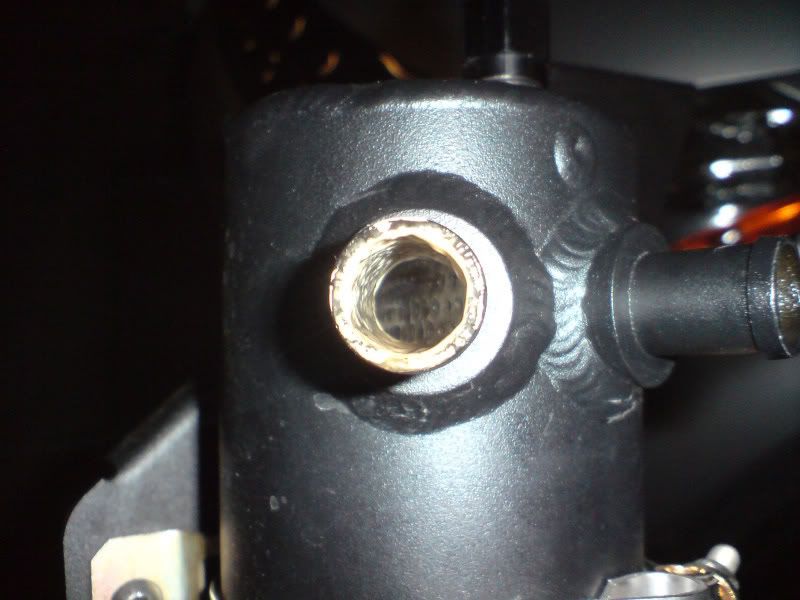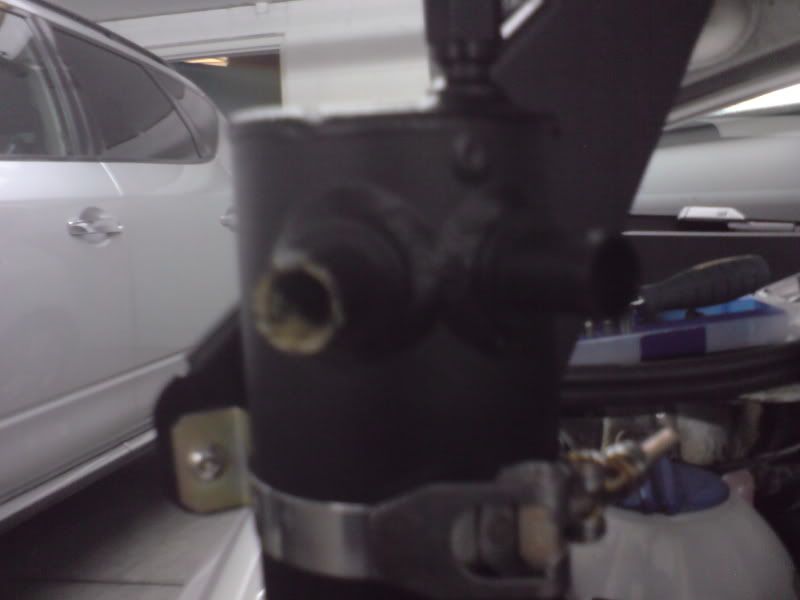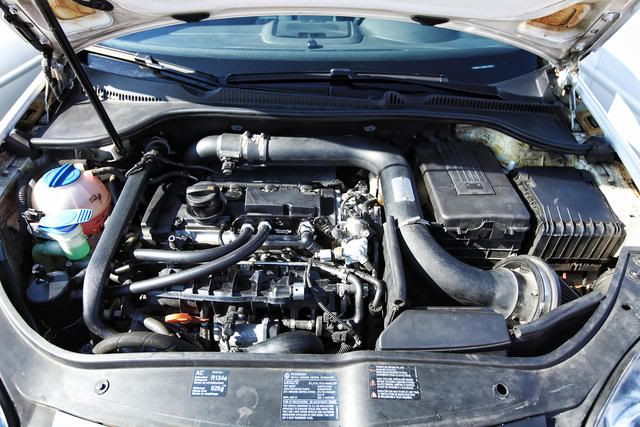I bolded the part where Ford (Yes FORD) has addressed this issue apparently in their DI engines already.
http://www.roadandtrack.com/article....rticle_id=8464
Direct Injection Longevity
We are sure to see more gasoline direct injection and gasoline direct-injection turbocharged engines in the near future. Will these engines be as reliable and trouble-free as the port-injection engines so common today? Will they run hotter and would it be better to use only synthetic oil in these engines? Are there any disadvantages to these engines other than that they cost more?
Richard Gilbert
Souderton, Pennsylvania
Spraying cold gasoline directly into the combustion chamber cools the intake charge, reducing the risk of detonation. This allows a higher compression ratio, blower boost or both, and that is where the extra engine efficiency comes from.
Thus, by itself, DI runs cooler and makes no special requirements on engine materials or longevity, so those parts remain unchanged. From that standpoint, DI engines should prove as reliable as traditional port fuel-injection powerplants. There is some increased complexity to DI, namely the high-pressure fuel pump (over 2000 psi), but considering diesel fuel pumps run at much higher pressures and have proven reliable, it seems logical that gasoline direct-injection pumps will also be reliable.
Adding turbocharging doesn't change DI's cooling effect, but does bring on the secondary conditions of increased weight, parts count and underhood heat retention.
Ford tells us these secondary effects are well controlled in EcoBoost applications. The turbos are small, packaged very low on the engine, water-cooled and don't have much heat-retaining mass. Again, diesel experience is favorable in these regards as well, but we'd keep an eye on any rubber parts near the turbos for heat degradation.
One DI concern is oil residue on the manifold side of the intake valve. Such residue comes from the PCV system and is continuously washed away by gasoline detergents in port fuel-injected engines. In a DI engine, however, the fuel is injected downstream of the intake valve so no valve washing takes place. Ford has found extra oil filtering of the PCV air is required; this is done with a media-type device mounted externally to the engine, typically atop a valve cover. There seem to be no special oil requirements.
If the intake valves aren't washed by DI, the cylinder walls might be. The resulting high ring wear was likely more of an issue in vintage direct-injected gasoline engines (WWII Mercedes aircraft V-12s and 300SL variants come to mind) where the fuel spray was relatively crudely controlled compared to today's electronically governed, multi-strike applications. We'd think there is precious little fuel "waste" to hit the cylinder walls given today's emphasis on reduced emissions and fuel consumption.
Bottom line: We believe the new crop of turbocharged, direct gasoline-injected engines offers a rare jump forward in both power and economy at mainly the cost of higher initial investment. Durability should be on a par with current gasoline engines, with the possible exception of rare additional maintenance to accessories such as the fuel pump, filter media or turbos.
We are sure to see more gasoline direct injection and gasoline direct-injection turbocharged engines in the near future. Will these engines be as reliable and trouble-free as the port-injection engines so common today? Will they run hotter and would it be better to use only synthetic oil in these engines? Are there any disadvantages to these engines other than that they cost more?
Richard Gilbert
Souderton, Pennsylvania
Spraying cold gasoline directly into the combustion chamber cools the intake charge, reducing the risk of detonation. This allows a higher compression ratio, blower boost or both, and that is where the extra engine efficiency comes from.
Thus, by itself, DI runs cooler and makes no special requirements on engine materials or longevity, so those parts remain unchanged. From that standpoint, DI engines should prove as reliable as traditional port fuel-injection powerplants. There is some increased complexity to DI, namely the high-pressure fuel pump (over 2000 psi), but considering diesel fuel pumps run at much higher pressures and have proven reliable, it seems logical that gasoline direct-injection pumps will also be reliable.
Adding turbocharging doesn't change DI's cooling effect, but does bring on the secondary conditions of increased weight, parts count and underhood heat retention.
Ford tells us these secondary effects are well controlled in EcoBoost applications. The turbos are small, packaged very low on the engine, water-cooled and don't have much heat-retaining mass. Again, diesel experience is favorable in these regards as well, but we'd keep an eye on any rubber parts near the turbos for heat degradation.
One DI concern is oil residue on the manifold side of the intake valve. Such residue comes from the PCV system and is continuously washed away by gasoline detergents in port fuel-injected engines. In a DI engine, however, the fuel is injected downstream of the intake valve so no valve washing takes place. Ford has found extra oil filtering of the PCV air is required; this is done with a media-type device mounted externally to the engine, typically atop a valve cover. There seem to be no special oil requirements.
If the intake valves aren't washed by DI, the cylinder walls might be. The resulting high ring wear was likely more of an issue in vintage direct-injected gasoline engines (WWII Mercedes aircraft V-12s and 300SL variants come to mind) where the fuel spray was relatively crudely controlled compared to today's electronically governed, multi-strike applications. We'd think there is precious little fuel "waste" to hit the cylinder walls given today's emphasis on reduced emissions and fuel consumption.
Bottom line: We believe the new crop of turbocharged, direct gasoline-injected engines offers a rare jump forward in both power and economy at mainly the cost of higher initial investment. Durability should be on a par with current gasoline engines, with the possible exception of rare additional maintenance to accessories such as the fuel pump, filter media or turbos.













 Reply With Quote
Reply With Quote





 you can easily get a Carbing Catch can and hook it up yourself. I picked up one for a friend's GTI and he's ordering the PCV plates so I Can hook it up for him. Carbing Catch cans and some Forge catch cans are Universal for people who hook it up in their cars and aren't using specific kits. It may not look as clean or be easy to install, but still does the job for a lot less money, and still does the same thing.
you can easily get a Carbing Catch can and hook it up yourself. I picked up one for a friend's GTI and he's ordering the PCV plates so I Can hook it up for him. Carbing Catch cans and some Forge catch cans are Universal for people who hook it up in their cars and aren't using specific kits. It may not look as clean or be easy to install, but still does the job for a lot less money, and still does the same thing.




Bookmarks